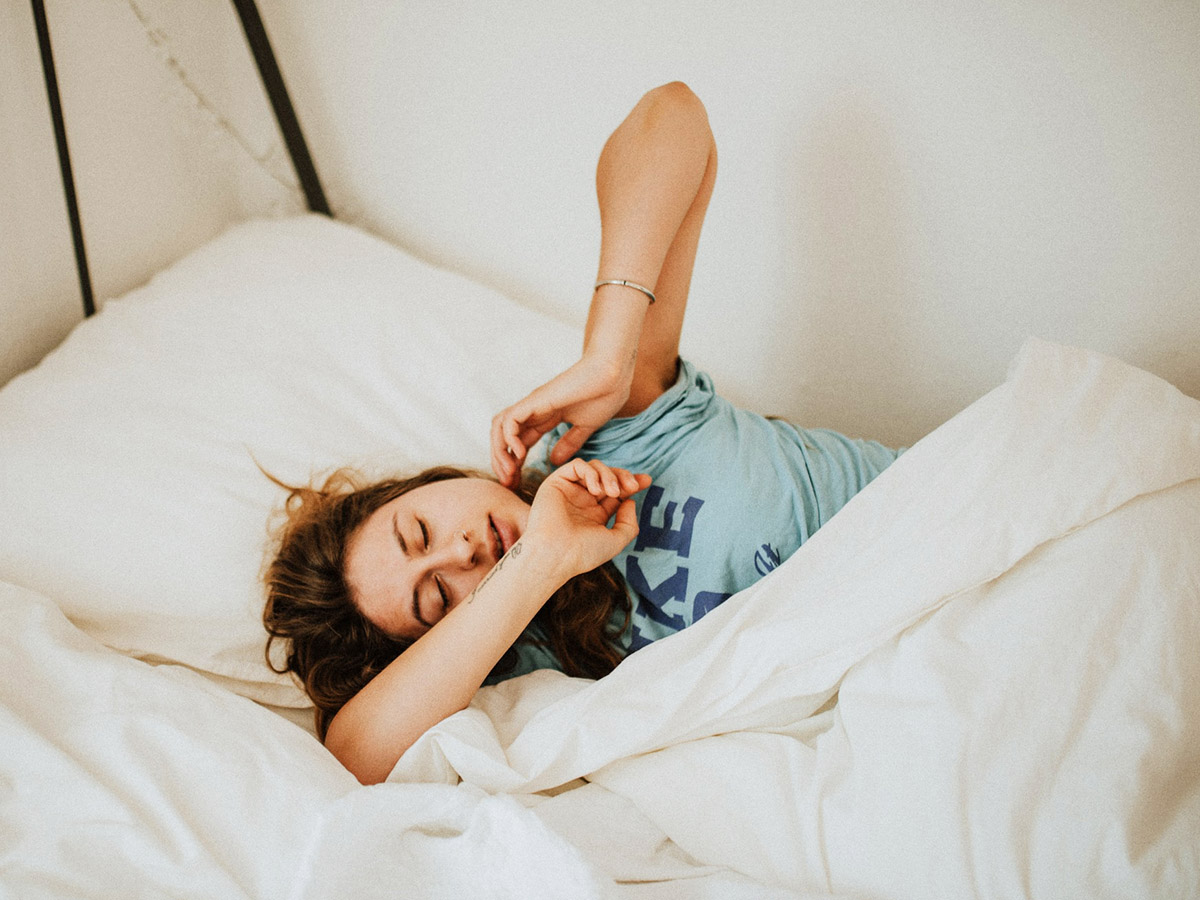Nootropics are a type of supplement that is claimed to have cognitive-enhancing effects. But can nootropics help with sleep? Some people believe that taking nootropics can help with sleep, although there is limited evidence to support this claim. In this blog post, we will cover what nootropics are, how they work, and what evidence is available to support the claim that they can help with sleep. We will also discuss the risks and side effects associated with taking nootropics for sleep.
What Are Nootropics?
Nootropics are cognitive enhancers that help with memory, focus, and concentration. They can be used to treat patients with sleep disorders like insomnia. Additionally, they can help you fall asleep faster and stay asleep longer. There are many different types of nootropics, so it’s important to find the right one for you. Here are a few tips to help you choose the best nootropic for your needs:
– Start by assessing what areas of your life could benefit from improvement.
– Consider what type of cognitive enhancement you want (i.e., memory, focus, etc.).
– Research the different types of nootropics available and decide which ones would be best for you.
– Experiment with different doses to see what works best for you.
How Do Nootropics Work?
Nootropics are a type of medication that has been shown to help improve sleep quality for patients with sleep problems. They work by increasing levels of neurotransmitters in the brain, which can improve the quality of sleep and alleviate symptoms associated with poor sleep.
There are a variety of nootropic drugs available that have demonstrated potential for helping with sleep issues, but some show greater promise than others. Some specific nootropics that have been shown to be helpful for this purpose include Modafinil (Provigil), Piracetam, and Aniracetam. It is important to note that not all nootropics are effective for all patients; it is important to speak with your doctor about which drug may be best suited for you.
Each nootropic has its own unique benefits and side effects. For instance, Modafinil is known to stimulate wakefulness and improve focus, but it can also lead to headaches and fatigue. Piracetam can help improve cognitive function and memory while reducing anxiety and stress levels, but it may also cause stomach upset or headaches. Aniracetam is known to boost moods and relieve symptoms of depression, but it may also cause dizziness or nausea.
As with most medications, there are some potential risks associated with using nootropics for sleep purposes. Some people have reported experiencing withdrawal symptoms if they stop taking a nootropic suddenly; others have had negative interactions with certain drugs that increase the risk of heart disease or stroke. It is important to be aware of these risks before starting treatment, as well as to monitor any changes in your health after beginning therapy.
What Evidence Is There That Nootropics Can Help With Sleep?
There is evidence that nootropics can help improve sleep quality in people with sleep problems. This can be helpful for those who have difficulty sleeping, as it can help to improve their quality of sleep overall. Additionally, nootropics can help increase alertness and reduce fatigue. This can lead to improved cognitive function and increased productivity during the day.
There are a variety of nootropics that have been shown to improve sleep quality. These include compounds like caffeine and nicotine, as well as antioxidants like melatonin. Some studies have found that these substances can help improve the duration and quality of sleep, while others have found that they can help reduce symptoms associated with sleep problems such as fatigue and insomnia. Overall, the evidence suggests that nootropics can be helpful for those who struggle to get a good night’s sleep.

Are There Any Risks Associated With Taking Nootropics For Sleep?
There are some risks associated with taking nootropics for sleep. For example, they may help patients with sleep problems, but there is also the potential for adverse effects. It is important to weigh these risks and benefits carefully before taking any nootropic medication for sleep.
Some potential adverse effects of nootropic medications for sleep include abnormal thinking, memory problems, and even Ebstein’s anomaly. These side effects can be serious and should not be taken lightly. It is also important to note that nootropics for sleep are not without risk; they can also have negative impacts on other aspects of health. It is important to weigh the benefits and risks of taking these medications before starting treatment.
How Can I Decide If Taking Nootropics For Sleep Is Right For Me?
If you are experiencing sleep problems, it is always best to speak to a doctor. Nootropics can be used as an adjuvant therapy to help with sleep in addition to other treatments like CBT-I. However, there is no one perfect answer for whether or not they can help with sleep. It depends on the individual’s specific situation and type of sleep problem.
If you are experiencing sleep problems, Nootropics can be an effective adjuvant therapy. However, not all patients will see the same benefits. It is important to speak with a doctor who can help determine if nootropics are right for you. There is no one-size-fits-all answer when it comes to the use of nootropics for sleep and each individual should consult with their doctor prior to starting any medication.
What Are Some Common Side Effects Of Nootropics?
Nootropics are a type of “smart drug” that is thought to improve cognitive function. However, like any other drug, they can also have side effects. Here are some common side effects of nootropic use:
Some people report feeling more tired when they first start taking nootropics. This is likely due to the fact that they are improving their cognitive function. If you take too many nootropics, however, you may find that your sleep patterns become disturbed. It is important to find the right balance of doses to minimize side effects while still benefiting from the benefits of nootropics.
Some people experience headaches when they first start taking nootropics. This is likely due to the increased cognitive function that the nootropic is providing. If you take too much, however, you may find that your headaches become more severe. It is important to find the right balance of doses to minimize side effects while still benefiting from the benefits of nootropics.
Some people develop a tolerance to the effects of nootropics over time. This means that they need higher and higher doses of nootropics in order to maintain their desired level of cognitive function. If you are experiencing adverse side effects from using a particular nootropic, it may be best to discontinue use and wait until your tolerance has diminished before trying it again.
Where Can I Find More Information About Taking Nootropics For Sleep?
If you are seeking more information about taking nootropics for sleep, consider talking to your doctor or researching online. There are many helpful resources available that can provide you with more information.
Be sure to read through user reviews and cautionary tales before taking any substances, even if they are legal and have been touted as helpful by others. This is because nootropics can have both positive and negative effects, so it is important to be aware of what these effects may be before taking them.
Nootropics can be a helpful tool for those looking to improve their sleep quality. However, like with anything else, they should only be used under the guidance of a qualified health professional. There are many different types of nootropics and each one has its own set of benefits and risks. It is important to do your research before taking any nootropic to ensure that it is safe for you and will have the desired effect.
Are Nootropics Effective in Treating Sleep Disorders?
Nootropics, often referred to as smart drugs, have gained attention for their potential benefits in improving cognitive function. However, when it comes to sleep disorders, the effectiveness of nootropics remains uncertain. While some users claim the benefits of nootropics for better sleep, scientific evidence establishing their efficacy is still limited. Further research is needed to determine whether nootropics can truly aid in treating sleep disorders.
Final Thoughts: Can nootropics help with sleep?
Nootropics can have both positive and negative effects. Overall, the evidence suggests that they can be helpful for those who struggle to get a good night’s sleep. However, it is important to weigh the benefits and risks of taking these medications before starting treatment.
If you are experiencing sleep problems, Nootropics can be an effective adjuvant therapy. However, not all patients will see the same benefits. It is important to speak with a doctor who can help determine if nootropics are right for you.

